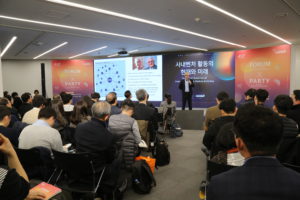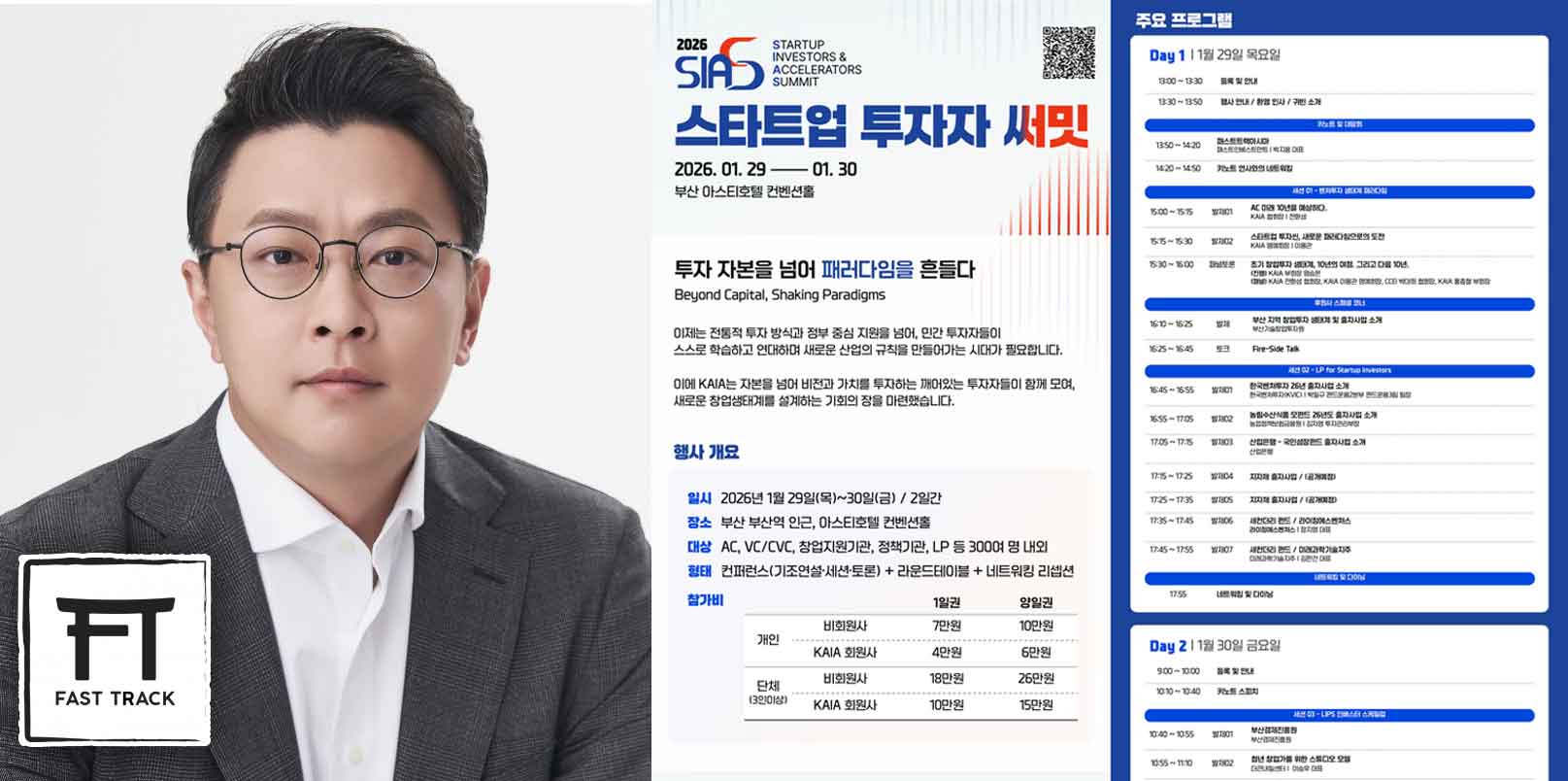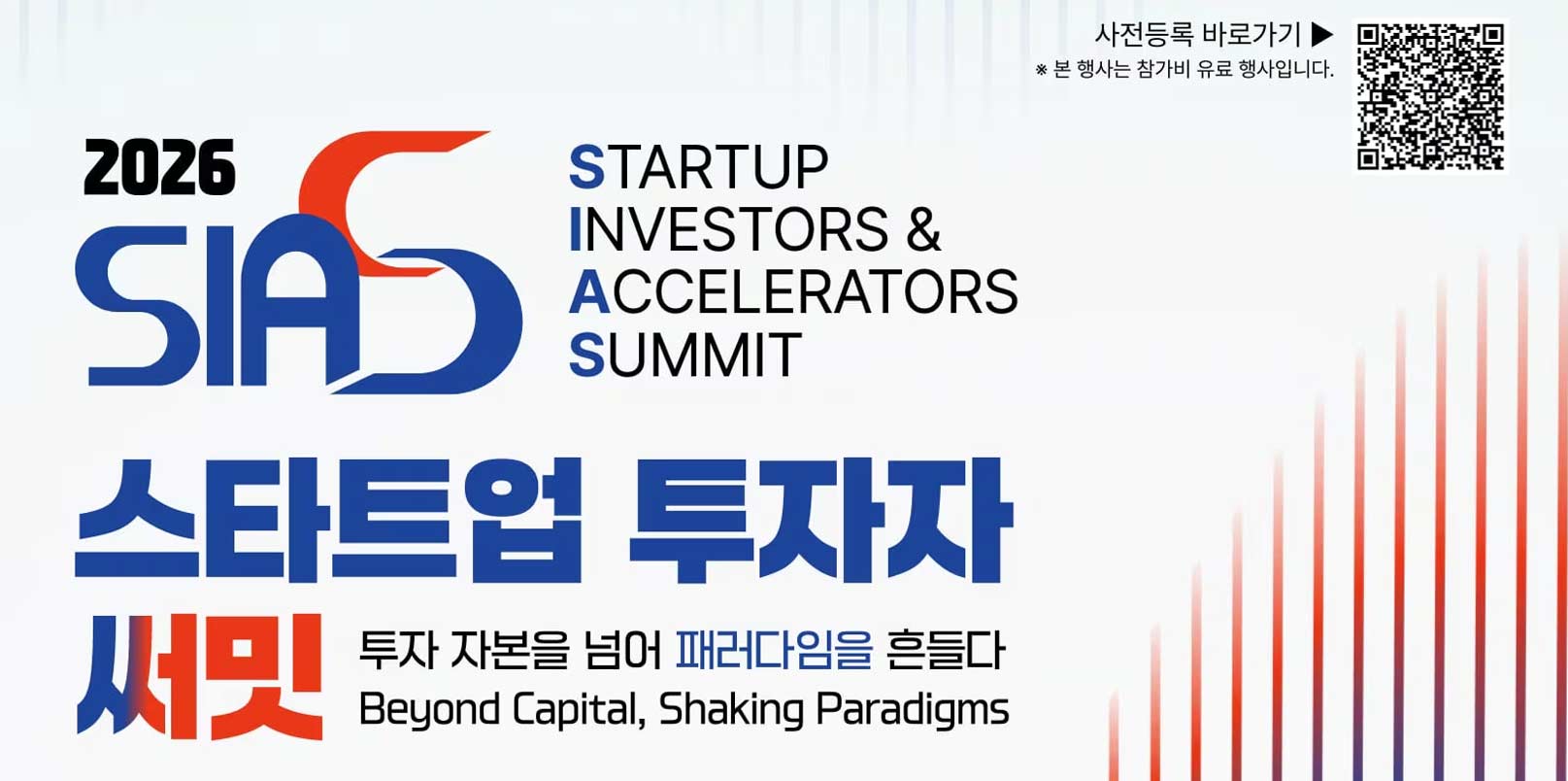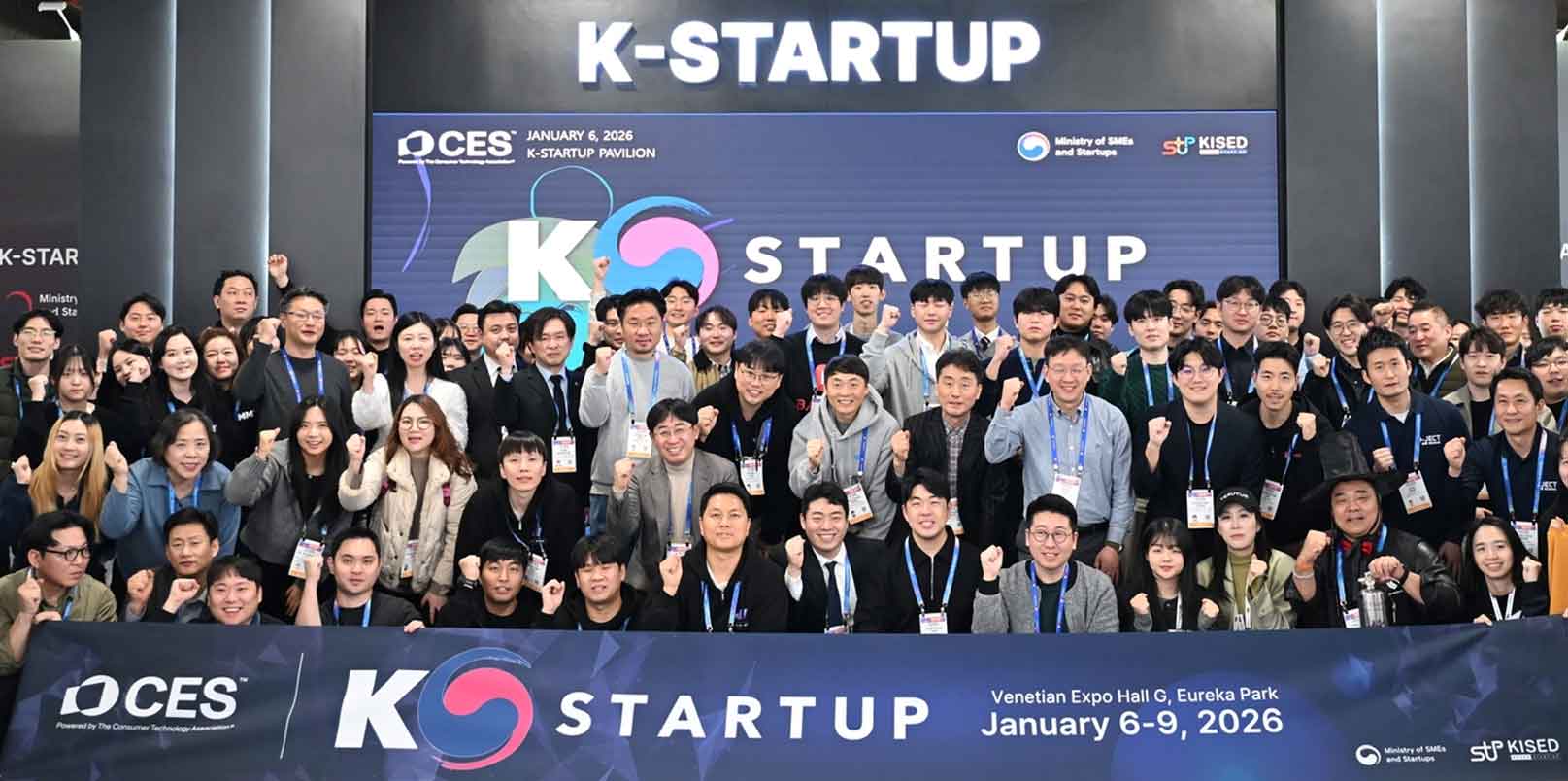The K-Startup Week- ComeUp 2019, a global flagship startup event aimed at promoting the Korean startups held from November 27 to 29th, had some successful side-events as part of the program. On November 29, an event titled “Internal Corporate Venture Forum” was held at DDP (Dongdaemun Design Plaza) Art Hall 2. It was part of the Korea Open Innovation Forum & Party, which had information sharing, panel discussion, startup IR and networking on the roles and challenges of in-house ventures activities.
Titled “Present and Future of Internal Venture Activities,” the event had both Korean and international venture experts discuss the spread of venture culture and seek successful strategies to drive innovative startup growth based on win-win cooperation. The experts shared success stories on present and future strategies related to internal ventures.
The keynote speaker of the Forum, Hermawan Kartajava (Founder and Chairman of MarkPlus, Inc.), is the co-writer of Marketing 4.0 along with Philip Kotler. During the event, he introduced successful case studies of unicorn startups, such as Go-Jek and Grab, along with valuable insights on the future role of in-house ventures in the era of Marketing 5.0, where technology and human values will integrate.
Chairman Kartajava, a co-founder of Asia Marketing Federation and the President of Asia Council for Small Business (ACSB), is a world-class marketer. Kartajava has been named as one of the “50 Gurus Who Have Shaped the Future of Marketing” in 2003 along with Philip Kotler, Gary Hamel, and Seth Godin. The session was followed by the Ministry of SMEs and Startups (MSS), who shared its cases on operations of its in-house venture support programs.

Professor Marc Meyer of Northeastern University shared stories on the impact of improvements made to each stage of commercialization strategies for the growth of in-house venture and early-stage spin-off startups. Professor Meyer talked about their ‘Innovative Boot Camp for Startups.’ He spoke in detail about corporate venturing through the traditional pathways where large corporates invest in emerging companies and eventually acquire them. He gave the example of Microsoft, which has spent 100 billion dollars over the last 20 years buying companies. He explained when significant companies acquisitions happen, there is a lot of uncertainty involved, especially when it comes to people working there. He also elaborated about technology-intensive spin-offs that come out of university labs and the corporate spin-off culture in the USA. The event concluded with the panel discussion consisted of experts from industries, research centers, academia, and the audience.
There was also a sharing of the operation status of an in-house venture with Jang Seung-rae, CEO of Dver and four other persons. Dver is the first in-house venture of LG Uplus. It is a crowdsourcing-based delivery platform that anyone with the means of transportation – workers, housewives, and even college students – could register as “delivery partners” to deliver packages to customers at a designated time. More commonly known as “quick service” in Korea, the platform would locate and assign a partner less than a minute away based on distance and rating. The customers would also receive messages on the location, contact, and final delivery of the deliverer.
Cha Jeong Hun, Director General of Office of Startup and Venture Innovation of MSS stated that the government has been “running support programs to nurture in-house ventures that fully leverages large conglomerates innovation capacities since 2018,” and added that “the government would continue to actively support the private sector’s voluntary innovation activities to drive future growth.”
The second half of the event was on Wellness that included IR startup pitching sessions and networking opportunities to encourage win-win cooperation between big and small companies.





